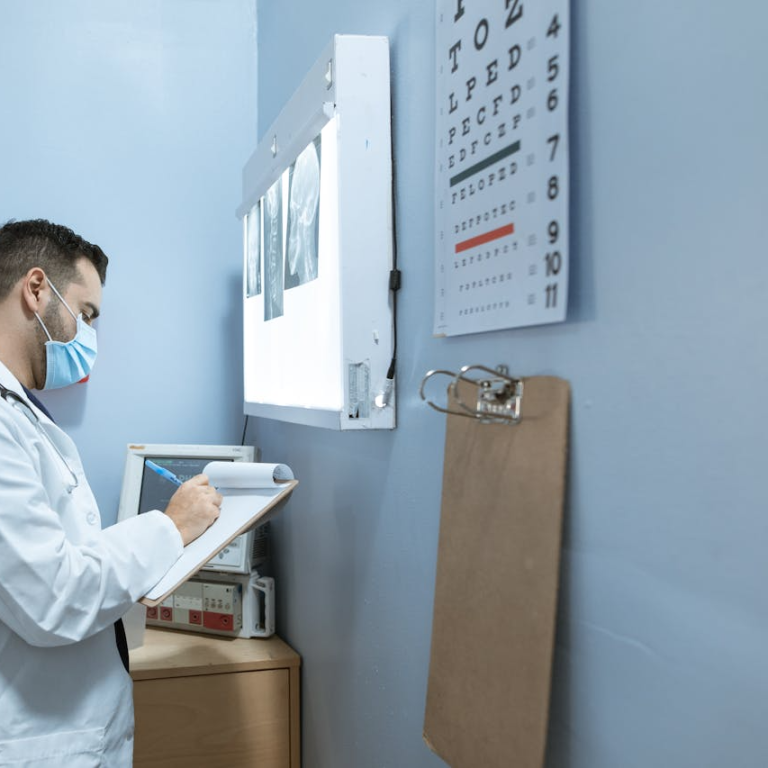Key Takeaways:
- Protecting yourself from Medicare fraud is crucial for safeguarding your personal information and ensuring you receive the correct medical services.
- By understanding common fraud tactics and how to report them, seniors can effectively protect themselves from potential scams.
Protecting Yourself from Medicare Fraud: What Every Senior Should Be Aware Of
Medicare fraud is an ongoing issue that affects countless seniors every year. It involves dishonest practices by individuals, companies, or organizations to receive unauthorized benefits from the Medicare program. While Medicare is designed to help seniors access the healthcare services they need, fraudulent activities can lead to financial loss, identity theft, and even compromised health care. Understanding how Medicare fraud occurs and the steps you can take to prevent it is essential for safeguarding your health and financial well-being.
What is Medicare Fraud?
Medicare fraud typically involves the intentional billing of Medicare for services, supplies, or medications that were not provided or necessary. It can take various forms, from billing for phantom services to upcoding, where services are billed at a higher rate than is appropriate. Fraud can also include the sale of unnecessary medical equipment, or the misrepresentation of dates or types of services received.
These activities not only drain billions of dollars from the healthcare system but also pose serious risks to patients. When fraudulent claims are made, it can lead to incorrect medical records, inappropriate treatments, and a disruption in the continuity of care. Seniors, in particular, are targeted due to their frequent need for medical services and potential vulnerability in navigating complex healthcare systems.
Common Types of Medicare Fraud
Medicare fraud can manifest in various ways, and being aware of these can help you recognize suspicious activities.
1. Billing for Services Not Provided
One of the most prevalent forms of Medicare fraud is billing for services, tests, or procedures that were never provided. This might involve billing for a hospital stay that never occurred or tests that were never administered. Fraudsters often rely on the fact that many seniors may not closely examine their Medicare statements, making it easier to slip fraudulent charges past them.
2. Upcoding
Upcoding occurs when healthcare providers submit claims for more expensive services than those actually provided. For example, billing for a comprehensive consultation when only a brief visit took place. This type of fraud can significantly increase costs for Medicare, which, in turn, can affect the entire healthcare system.
3. Unnecessary Services and Equipment
Another common scam involves persuading patients to undergo unnecessary tests or procedures, or to purchase medical equipment they do not need. This not only wastes Medicare resources but can also lead to unnecessary medical interventions that could harm the patient.
4. Identity Theft
Medicare-related identity theft involves stealing someone’s Medicare number to access healthcare services or file fraudulent claims. This can result in false information being added to your medical records, which can lead to inappropriate treatment down the line.
5. Kickbacks and Bribes
Some fraudulent schemes involve healthcare providers offering kickbacks or bribes to patients in exchange for their Medicare information. This could be in the form of free services or cash incentives, which are illegal and can lead to significant penalties for both the provider and the patient.
How to Protect Yourself from Medicare Fraud
Protecting yourself from Medicare fraud requires vigilance and an understanding of how these scams operate. Here are some practical steps every senior should take:
1. Keep Your Medicare Number Safe
Your Medicare number is as valuable as your credit card number. Never give it out to anyone except your trusted healthcare providers. Be cautious of unsolicited calls or emails asking for your Medicare information. Scammers often pose as Medicare representatives, so always verify the identity of the person or organization before sharing any details.
2. Review Your Medicare Statements Regularly
Make it a habit to review your Medicare Summary Notice (MSN) or Explanation of Benefits (EOB) statements carefully. Look for charges for services you didn’t receive or any suspicious entries. If you spot any discrepancies, report them immediately.
3. Be Wary of Free Services
If someone offers you free medical services or equipment in exchange for your Medicare number, be suspicious. Legitimate services under Medicare are generally not free, and offers of “free” services are often a red flag for fraud.
4. Report Suspicious Activity
If you suspect Medicare fraud, don’t hesitate to report it. Contact Medicare directly or the U.S. Department of Health and Human Services Office of Inspector General (OIG). You can also reach out to the Senior Medicare Patrol (SMP), an organization dedicated to helping seniors prevent and report Medicare fraud.
5. Stay Informed About Scams
Scammers are constantly coming up with new ways to exploit Medicare. Stay informed about the latest fraud schemes by subscribing to newsletters or alerts from trusted sources like the OIG or SMP. Being aware of the latest tactics can help you recognize and avoid potential scams.
The Importance of Reporting Medicare Fraud
Reporting Medicare fraud is not just about protecting yourself; it’s about protecting the entire Medicare system. Fraudulent activities drive up healthcare costs and can reduce the quality of care for everyone. By reporting suspicious activities, you contribute to the fight against fraud and help ensure that Medicare resources are used appropriately.
1. How to Report Medicare Fraud
Reporting Medicare fraud is straightforward and can be done anonymously. You can report fraud to the OIG, Medicare, or SMP. Provide as much information as possible, including the names of the individuals or organizations involved, the nature of the suspected fraud, and any relevant dates or documents.
2. What Happens After You Report?
Once a report is made, the relevant authorities will investigate the claims. This may involve reviewing medical records, interviewing witnesses, and potentially prosecuting those involved in the fraud. While the process can take time, reporting fraud is a crucial step in holding offenders accountable and protecting the integrity of the Medicare system.
3. Legal Protections for Whistleblowers
If you report fraud, you are protected by federal law. The False Claims Act, for example, allows individuals to sue on behalf of the government in cases of fraud and offers protection against retaliation. This means you can report fraud without fear of losing your healthcare benefits or facing other negative consequences.
Understanding the Role of Technology in Medicare Fraud
Technology has transformed healthcare, but it has also opened new avenues for fraud. Understanding the role of technology in Medicare fraud can help you stay vigilant.
1. Electronic Health Records (EHR) Fraud
While EHRs have made it easier for healthcare providers to manage patient information, they have also created opportunities for fraud. For instance, “copy-pasting” notes from one patient’s records to another’s can lead to billing for services not actually provided.
2. Telehealth Scams
With the rise of telehealth, scammers have found new ways to exploit seniors. Be cautious of unsolicited telehealth services or requests for your Medicare information over the phone or online. Always verify the legitimacy of telehealth providers before sharing any details.
3. Phishing Attacks
Phishing scams, where fraudsters send fake emails or messages claiming to be from Medicare, are increasingly common. These messages often contain links that lead to fake websites designed to steal your personal information. Always verify the source of an email or message before clicking any links or providing information.
Protecting Yourself in the Digital Age
As more healthcare services move online, protecting yourself from Medicare fraud requires additional vigilance. Here are some tips to safeguard your information in the digital age:
1. Use Strong Passwords and Security Measures
Always use strong, unique passwords for your online accounts, especially those related to your healthcare. Enable two-factor authentication (2FA) where possible to add an extra layer of security.
2. Monitor Your Online Accounts
Regularly monitor your online Medicare account and other healthcare portals for any unauthorized access or changes to your information. Set up alerts for unusual activity to stay informed.
3. Be Cautious with Social Media
Be mindful of what you share on social media, as scammers can use this information to target you. Avoid sharing personal details like your birthdate, address, or Medicare number on public platforms.
The Future of Medicare Fraud Prevention
As fraud schemes become more sophisticated, the fight against Medicare fraud must also evolve. The Centers for Medicare & Medicaid Services (CMS) is continually developing new tools and technologies to detect and prevent fraud. By staying informed and vigilant, seniors can play a crucial role in protecting themselves and the Medicare system as a whole.
1. Advanced Analytics
CMS is increasingly using advanced data analytics to identify patterns of fraud. These tools can analyze vast amounts of data to detect anomalies and potential fraud before payments are made.
2. Improved Reporting Systems
Efforts are being made to improve the reporting systems for Medicare fraud, making it easier for seniors and healthcare providers to report suspicious activities quickly and efficiently.
3. Enhanced Education and Outreach
Ongoing education and outreach programs aim to inform seniors about the latest fraud schemes and how to protect themselves. By participating in these programs, seniors can stay ahead of potential threats and contribute to the prevention of Medicare fraud.
Protecting Your Health and Financial Security
Medicare fraud is a serious issue that requires vigilance and proactive measures to combat. By understanding the different types of fraud, staying informed about the latest scams, and knowing how to report suspicious activities, seniors can protect themselves and help preserve the integrity of the Medicare system. Your health and financial security are worth safeguarding, so take the necessary steps to protect yourself from Medicare fraud today.
Contact Information:
Email: [email protected]
Phone: 7185553456










